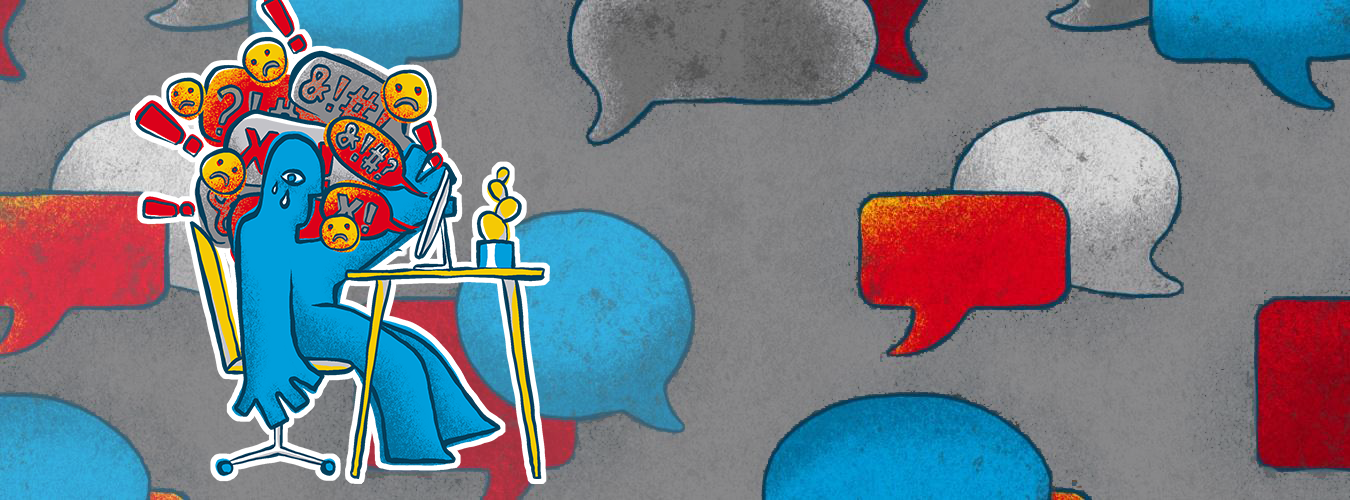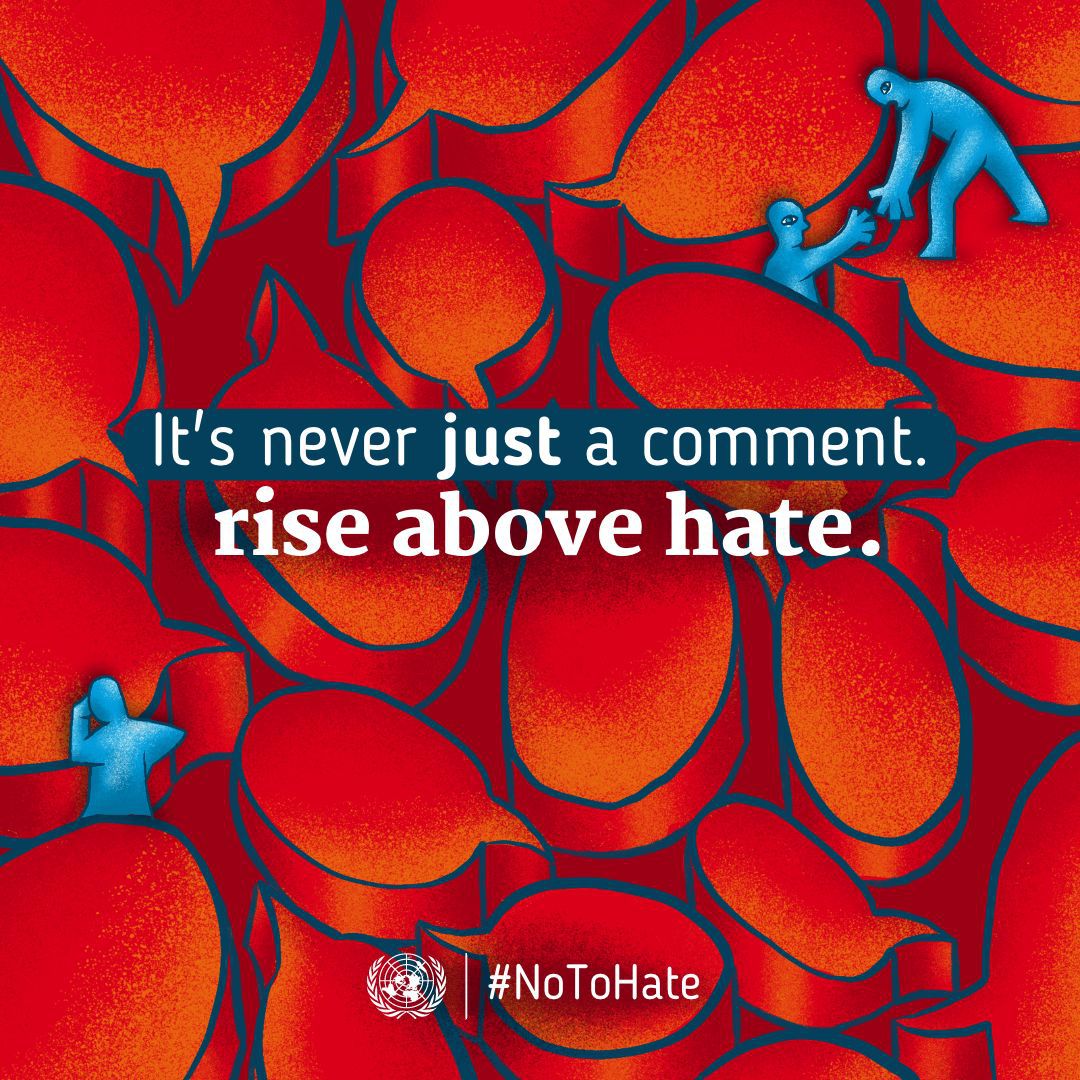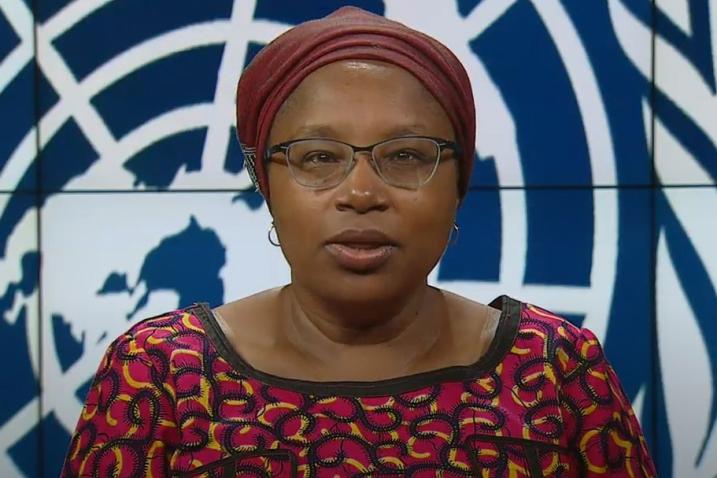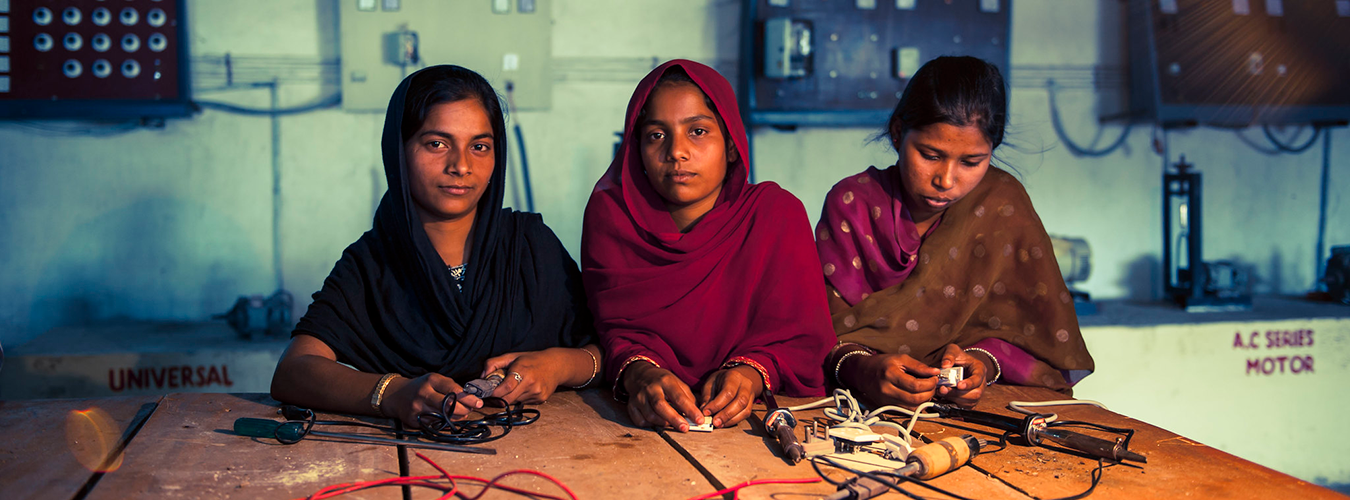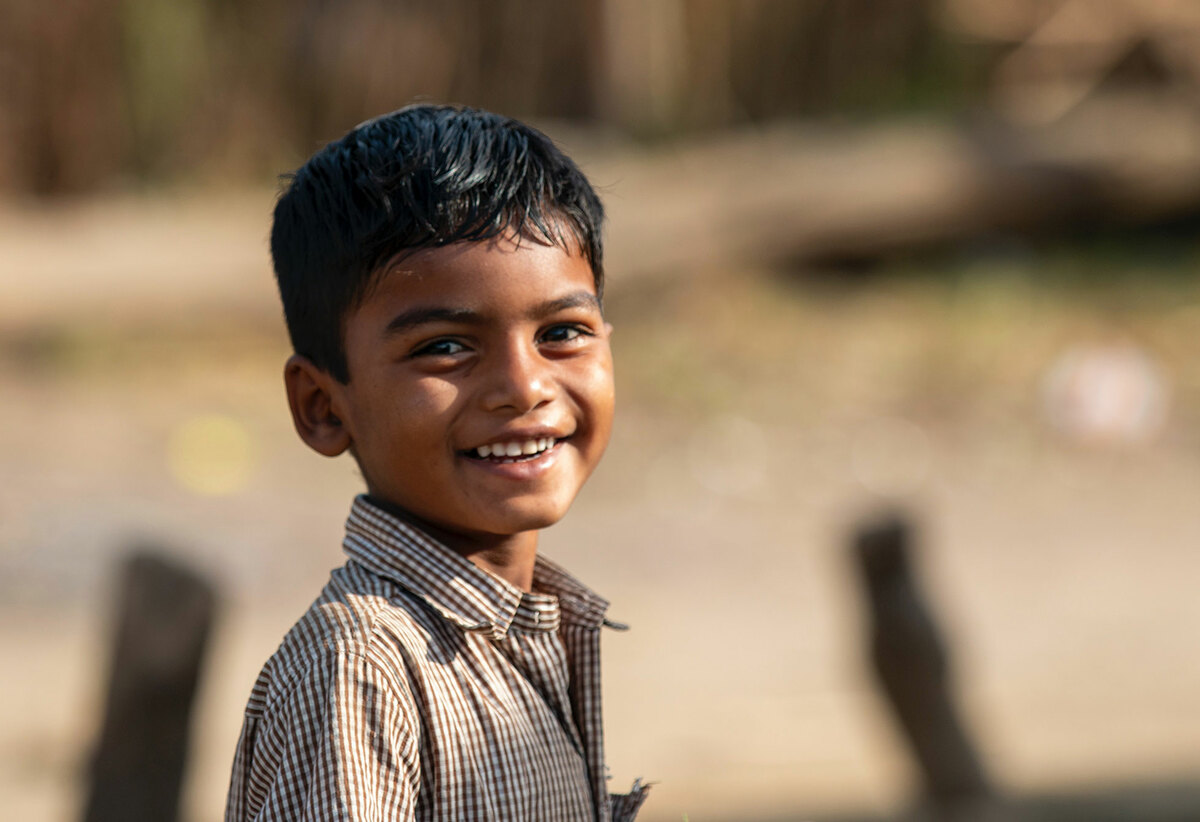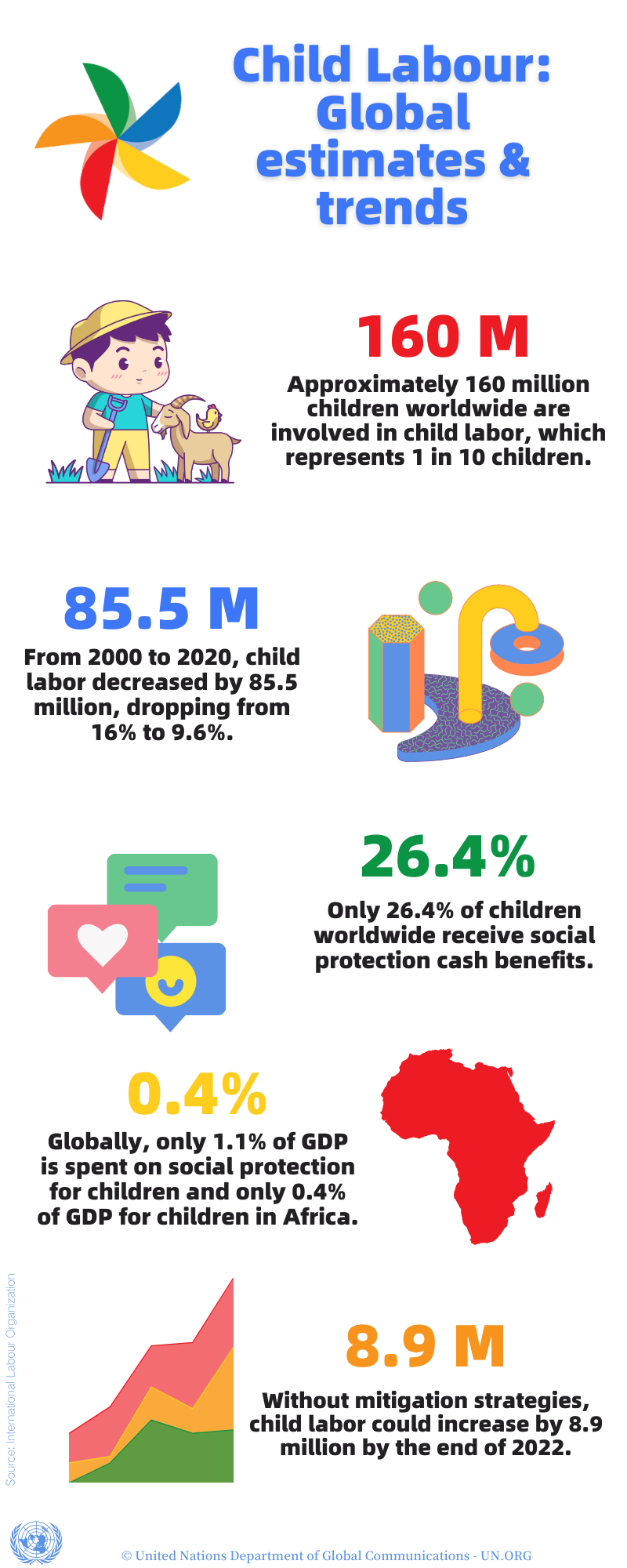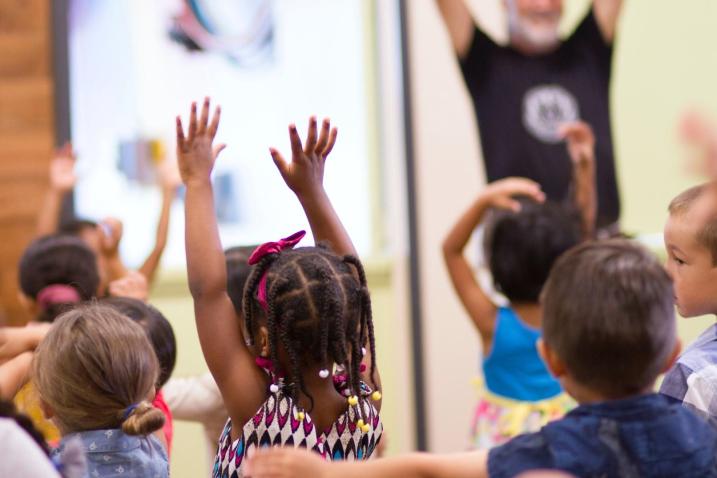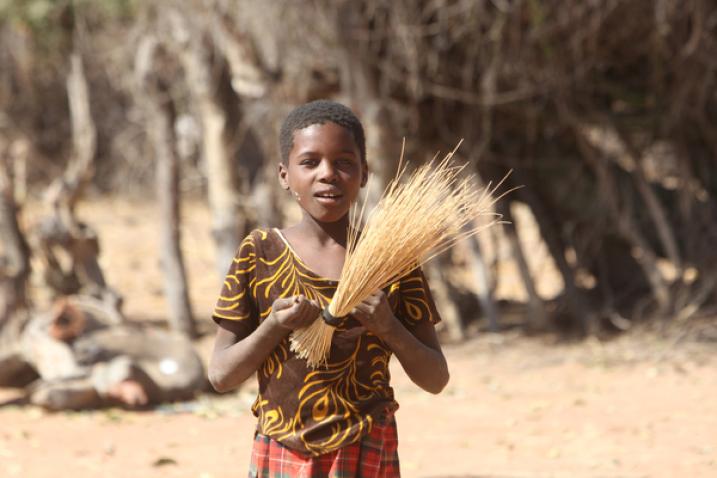But we are far from powerless in the face of hate speech. We can and must raise awareness about its dangers, and work to prevent and end it in all its forms."
UN Secretary-General António Guterres
Hate speech: Turning the tide
The devastating effect of hatred is sadly nothing new. However, its scale and impact are amplified today by new technologies of communication, so much so that hate speech, has become one of the most frequent methods for spreading divisive rhetoric and ideologies on a global scale. If left unchecked, hate speech can even harm peace and development, as it lays the ground for conflicts and tensions, wide scale human rights violations.
The United Nations has a long history of mobilizing the world against hatred of all kinds to defend human rights and advance the rule of law. The impact of hate speech cuts across numerous UN areas of focus, from protecting human rights and preventing atrocities to sustaining peace, achieving gender equality and supporting children and youth.
In response to the alarming trends of growing xenophobia, racism and intolerance, violent misogyny, antisemitism and anti-Muslim hatred around the world, UN Secretary-General António Guterres launched the United Nations Strategy and Plan of Action on Hate Speech on 18 June 2019.
The Plan of Action defines hate speech as any kind of communication in speech, writing or behaviour that attacks or uses pejorative or discriminatory language with reference to a person or a group on the basis of who they are -- in other words, based on their religion, ethnicity, nationality, race, color, descent, gender or other identity factor.
However, to date there is no universal definition of hate speech under international human rights law. The concept is still under discussion, especially in relation to freedom of opinion and expression, non-discrimination and equality.
Online hate speech might seem like an unstoppable tide, but strategies are being employed by governments, civil society, and individuals, to fight back.
The preventative role of education
As online environments have become echo chambers for hateful rhetoric, strengthening digital literacy as part of global citizenship education has become more important than ever. Addressing hateful rhetoric, whether online or in real life, comes easier when one is equipped with sufficient knowledge and skills to identify and counteract hate speech. The United Nations campaign #NoToHate offers insights on how to learn and share knowledge on issues related to tackling hate speech.
Learn moreBackground
In July 2021, the UN General Assembly highlighted global concerns over “the exponential spread and proliferation of hate speech” around the world and adopted a resolution on “promoting inter-religious and intercultural dialogue and tolerance in countering hate speech”.
The resolution recognizes the need to counter discrimination, xenophobia and hate speech and calls on all relevant actors, including States, to increase their efforts to address this phenomenon, in line with international human rights law.
The resolution proclaimed 18 June as the International Day for Countering Hate Speech, building on the UN Strategy and Plan of Action on Hate Speech launched on 18 June 2019.
To observe the Day, the United Nations invites governments, international organizations, civil society groups, and individuals to hold events and initiatives promoting strategies to identify, address and counter hate speech. This first UN system-wide initiative designed to tackle hate speech provides an essential framework for how the Organization can support and complement States' efforts.
Whether as Member States the private sector, the media and internet corporations, faith leaders, educators, actors of civil society, those affected by hate speech, youth, or simply as an individual, we all have the moral duty of speaking out firmly against instances of hate speech and play a crucial role to in countering this scourge.
Why tackle hate speech?
Since the spread of hateful rhetoric can be an early warning of violence – including atrocity crimes – limiting hate speech could contribute to mitigating its impact.
How to deal with hate speech
It can sometimes be hard to assess when a comment is meant as hate speech – especially when expressed in the virtual world. It can also feel overwhelming to try to deal with obviously hateful content. However, there are many ways you can take a stand, even if you are not personally the victim of hate speech. And you can make a difference.
Read more about the #NoToHate campaign by downloading our fact sheets. Use them to educate yourself, or in the classroom.
#NoToHate
As history continues to show, hate speech coupled with disinformation can lead to stigmatization, discrimination, and large-scale violence.
Events
High-level event to mark the 2nd International Day for Countering Hate Speech
Date: Monday, 19 June 2023
Time: 11:00 - 1:00pm EDT (New York time)
Place: Trusteeship Council • United Nations, New York
The United Nations Office on Genocide Prevention and the Responsibility to Protect and the Permanent Mission of the Kingdom of Morocco to the United Nations will host a high-level event to mark the 2nd International Day for Countering Hate Speech, showcasing champions of good practices on tackling hate speech from across the world.

Regional Launch of Addressing hate speech through education: a guide for policy-makers
Date: Tuesday, 20 June 2023
Time: 9am – 12:35pm
Place: Kathmandu, Nepal, hybrid
Online and offline, hate speech hurts, divides and affects communities worldwide. Is there a way to address its growing prevalence globally? And to what extent should preventive approaches be adapted regionally? Learn more about the event and watch live event on facebook!
Resources
- Resolution on the International Day for Countering Hate Speech
- UN Strategy and Plan of Action on Hate Speech
- Countering hate speech through sports
- Countering hate speech through education
- Countering disinformation
- Rabat Plan of Action
- Framework of Analysis for Atrocity Crimes
- Plan of Action for religious leaders and actors
- #NoToHate campaign
- Fight racism
Related observances
- International Day of Commemoration in Memory of the Victims of the Holocaust
- International Day for the Elimination of Racial Discrimination
- International Day of Reflection on the 1994 Genocide against the Tutsi in Rwanda
- International Day Commemorating the Victims of Acts of Violence Based on Religion or Belief
- International Day of Commemoration and Dignity of the Victims of the Crime of Genocide and of the Prevention of this Crime
- Human Rights Day
- End Racism Day



